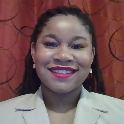Calculus Was The Hill I Climbed
I told my mother I wanted to be Amanda Gorman when I grew up. My mother told me Amanda Gorman would want me to be me. The recommendation stared me straight in the face, unmoving from the blue and white inbox, the warm counselor note, the glaring brightness of the screen. “AP Statistics,” it said. “Poor results can impact your future college”. “Difficulty and pressure”. The words cut me like the nagging loneliness, the worry in the back of my mind as I finished my summer presentation at NCSSM, wondering how my friends back home were faring in Precalculus, moving on to the next course without me. They cut me like the embarrassment I felt when I looked at my 100 average in Precalculus below my final grade of a mere 83 in Calc AB. As if I, before the pandemic, was a different child. A gifted child that excelled at math. A student that's hands did not turn clammy at difficulty and pressure. I had come to see Math as the shining field on the hill, the field of proving my worth, of securing my identity, of rising above who the world would always see me as when I walked into the room: a black girl. “She's so well-spoken.” “She's probably interested in Humanities.” These whispers spurred a fear of the ordinary so strong within me I forgot just how powerful words could be. Until I saw “The Hill We Climb”. Amanda Gorman was a black girl. Majoring in Sociology at Harvard. She was more than representation that day. She was everything I saw repressed in myself. To me, she was the person I could've aspired to be if I'd stop worrying about my classmates who went to AOPS and Kumon when I was stuck in a book. Her poise and smile are what I felt when I presented my public health business pitch, proudly, in front of stakeholders, family, and friends. Her joy is what I exhibited when I finished my opening statement, i's dotted, t's crossed, words flowing a mile a minute, confidently, sincerely, lively. The same feeling I got going to HOSA or watching Forensic Files. She made me question whether I should stop trying to hide who I was, and become who I wasn't. So when the HOSA deadline closed when I was in tears over some integration problem, I knew I had made a mistake. When the recommendation came in as AP Stats over Calc 3 and Differential Equations, I realized what the mistake was. Talent. Competitiveness. Passion. Words thrown around by college admissions and peers alike, empty, confusing, and stressful. My talent was not to be measured by my Calculus grade. My competitiveness was not to be measured by the AMC 10, or any other math competition. My passion was not found in spending late nights watching supplemental videos and degrading my academic abilities. I loved the humanities and the natural sciences. And I only hid in a valley of shallowness and shame when I lied about how normal and easy math was with all of the smugly-masked applicants. Somewhere, between the grinning, mad-eyed 10-year-old with a Science Olympiad medal slung around her neck and a very long list of overdue books, and the red-eyed, quiet shell of a teen that was getting ready to submit a registration form with 6 AP courses, I had lost who I wanted to be when I grew up. Turns out, I didn't really want to be Amanda Gorman. I wanted to be me. The girl who read a lot, smiled brightly, and didn't worry if her schedule looked rigorous enough to the Ivy Leagues. The girl who proudly brought her culture and heritage into a space that wasn't designed for her, and didn't think twice about it. The girl that didn't curse her parents for not making her study out of practice books as a child, but who fondly remembered playing in the street until the streetlights came on, watching movies with family, and doing what she loved to do. I wanted to go back to a time where math didn't define me, or who I was going to be when I grew up. When I stopped crying, the blue and white screen came back into focus. I closed out of the registration form and hugged my mother. I knew at that moment, that I wanted to climb out of that valley. Amanda Gorman showed me that there was a hill, that yes, we all climb. But she also showed me that it wasn't a failure to reconsider math or to be the light I was always meant to be. It was brave.








